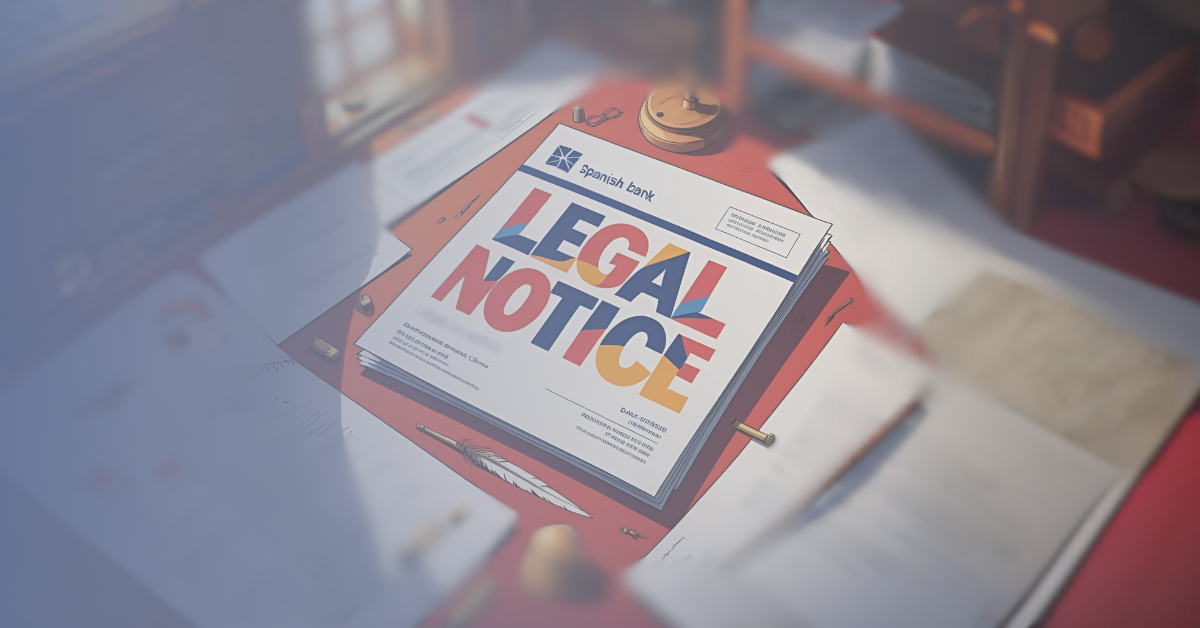Receiving a legal notice from a foreign bank can be both intimidating and confusing, especially if you’re unfamiliar with the legal system in the country where your property is located.
Whether it’s a Writ of Summons from a Cypriot court or a solicitor’s letter in Spain, understanding what these documents mean and how to respond is critical to protecting your financial future.
This guide will help you decode the legal process and take control of your foreign property mortgage debt situation.
Why Did You Receive a Legal Notice?
Legal notices from foreign banks or vulture funds are often issued after borrowers fall into arrears on their foreign property mortgage. These notices are the first step in formal legal proceedings and are designed to pressure you into settling the debt quickly.
Common reasons for receiving a legal notice include:
- Missed mortgage payments on overseas property.
- Longstanding, unresolved foreign property mortgage debt.
- Transfer of your debt to a vulture fund seeking repayment.
- Repossession attempts due to negative equity property debt.
Failing to address these notices can result in foreign court proceedings for property disputes abroad, significantly escalating the situation.
What Does a Legal Notice Typically Include?
Foreign legal notices vary by country, but they often contain:
- Formal demands for repayment of the mortgage or debt.
- Notification of pending legal action or court hearings.
- A Writ of Summons requiring you to respond within a specific time.
- Details of the outstanding debt, often inflated by fees and interest.
- Contact information for legal representatives or foreign solicitors.
Important: These are not idle threats. Once legal action begins abroad, it may result in repossession of abroad property and the enforcement of judgments in your home country.
How to Respond to a Legal Notice from a Foreign Bank
If you’ve received a legal letter or court document from a foreign lender, act fast. Here’s what to do:
1. Don’t Ignore It
Failure to respond could result in a default judgment, meaning the court may rule against you without hearing your side.
2. Seek Legal Advice Immediately
Consult experts in international property disputes who understand the laws in the relevant country. They can:
- Review the validity of the claim.
- Represent you in foreign court proceedings.
- Communicate with foreign solicitors or vulture funds on your behalf.
3. Evaluate Your Options
You may be eligible for:
- Out of court settlements for foreign property disputes.
- Debt reduction negotiations or structured repayment plans.
- Legal challenges based on unfair lending, mis-selling, or contract errors.
What Happens If You Do Nothing?
Many borrowers mistakenly believe that if they ignore the notice, the problem will disappear, especially if they no longer live in or use the property. However, the consequences can be severe:
- Repossession of your overseas property.
- Foreign court judgments enforced in the UK or Ireland.
- Long-term damage to your credit rating.
- Aggressive pursuit by vulture funds in Spain or Cyprus.
Doing nothing is almost always the most costly option.
Take Control with Expert Help
At EU Property Solutions, we specialise in resolving foreign mortgage problems and helping clients respond to legal notices from foreign banks. Our team provides:
- Legal advice tailored to your specific country and lender.
- Support with international property dispute resolution.
- Negotiation with foreign banks and debt buyers to reach fair outcomes.
Act Now – Protect Your Assets and Peace of Mind
If you’ve received a legal notice from a foreign bank, don’t delay. Time limits on responding can be short, and quick action may help avoid court proceedings entirely.
Contact us today for a confidential consultation and explore your best path forward.






